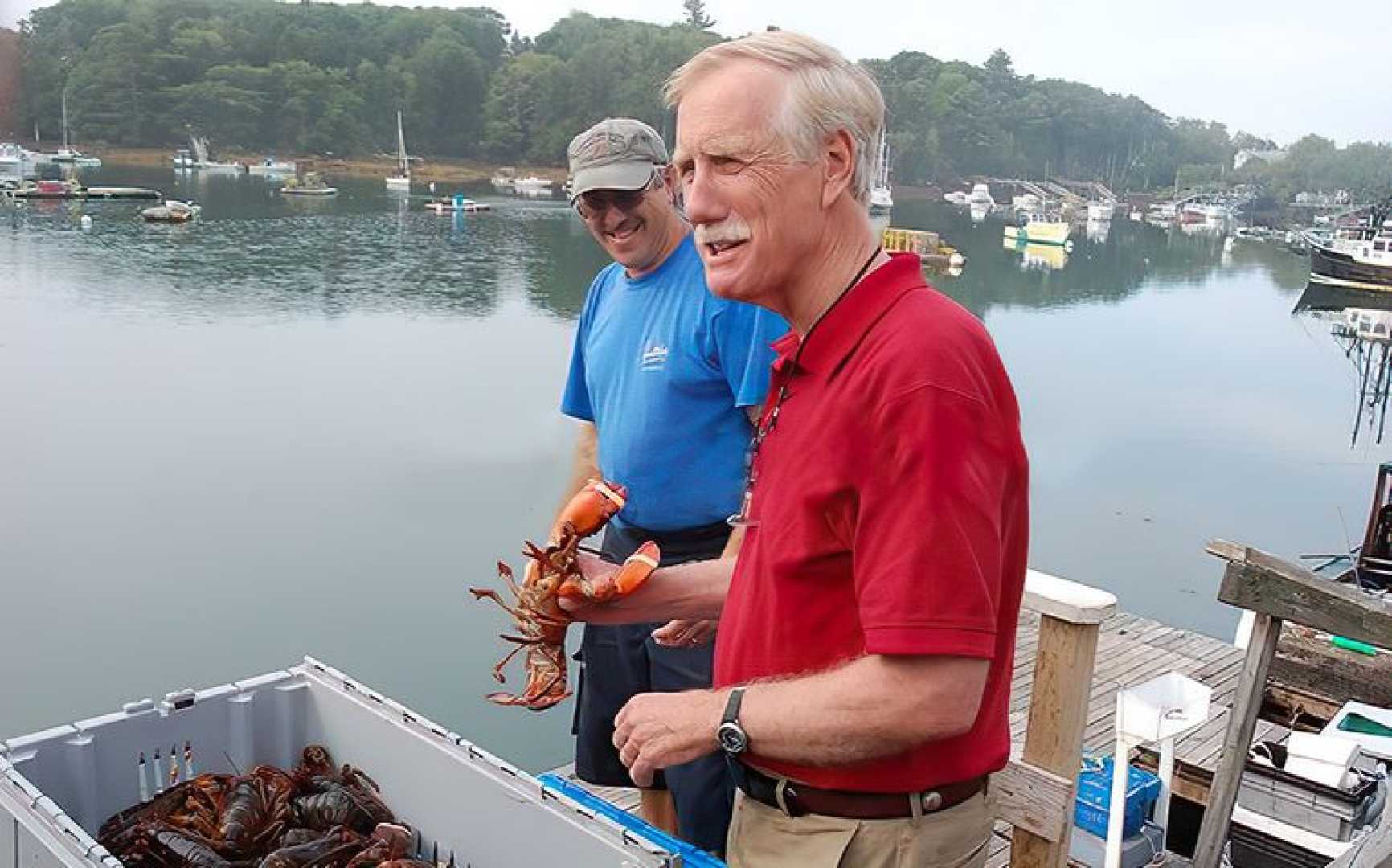Politics
Sen. Angus King Pushes for Release of Blocked Agricultural Funds

AUGUSTA, Maine — Independent U.S. Senator Angus King joined Senate Democrats on Monday to advocate for the release of federal agricultural funding currently withheld by the Trump administration. The proposed legislation, known as the Honor Farmer Contracts Act, aims to instruct the U.S. Department of Agriculture (USDA) to immediately unfreeze signed agreements and expedite overdue payments to farmers.
The Trump administration is blocking these funds, which total about $12 million for Maine farmers, arguing that the cuts are essential to reduce federal spending and eliminate programs it deems unnecessary, including climate change initiatives and diversity efforts. This funding is part of a larger allocation of $38 billion over ten years associated with the Inflation Reduction Act.
“Farmers are an original building block of our state economy, providing jobs and a secure food source for thousands of people in Maine and across the northeast,” King stated. “The Honor Farmer Contracts Act would ensure that Maine’s farmers receive the federal funding from all signed agreements and contracts as quickly as possible to prevent any operations from having to shut down.”
The bill mandates that the USDA must: unfreeze all signed agreements and contracts, make all past due payments promptly, and prohibit the cancellation of agreements or contracts without demonstrated violations. It also requires the USDA to notify Congress with justification at least 60 days prior to closing any local agricultural service office.
Senator Cory Booker of New Jersey introduced the measure, which is co-sponsored by King and 12 other senators, focusing on the urgency of releasing funds tied to vital conservation efforts.
Over a year after the measures were ordered, Maine farmers remain in limbo as they await access to the $12 million in conservation grants that are critical for projects including soil health improvement and carbon sequestration. Farmers from Brunswick, Dresden, Freeport, West Gardiner, and Whitefield are among those impacted, having completed contracts but not received the necessary funding to sustain their operations.
U.S. Secretary of Agriculture Brooke Rollins emphasized the necessity to assess the IRA allocations, asserting that the focus must remain on assisting farmers rather than funding unrelated initiatives. “USDA continues to review IRA funding to ensure that programs are focused on supporting farmers and ranchers, not DEIA programs or far left climate programs,” Rollins stated.
Annie Watson, president of the Maine Dairy Industry Association and a first-generation dairy farmer, expressed the financial strain created by the funding freeze. “Without these funds, most Maine farmers couldn’t afford these conservation programs. It’s incredibly important that that water is protected,” Watson said, highlighting the hefty expenses of drafting necessary environmental plans.
The broader impact of the funding freeze not only threatens individual operations but could lead to a larger crisis within Maine’s agricultural sector. In February, the USDA reduced its workforce by 6,000 employees, jeopardizing the programs that support food security and agricultural innovation.
“The economic sustainability of the Maine agricultural community requires constant change and innovation to remain competitive in this global marketplace,” noted Eric Venturini of the Agricultural Council of Maine. “USDA staffing and funding are essential for supporting Maine farms.”
In a statement to Secretary Rollins, Republican Senator Susan Collins expressed her concerns regarding the funding delays, emphasizing the urgent timing for farmers. “Agriculture producers are purchasing seeds and products that they will plant in just a few months. It is essential that farmers receive clarity that money they have planned for will be released,” Collins wrote.












